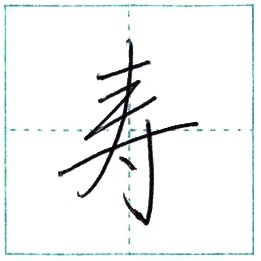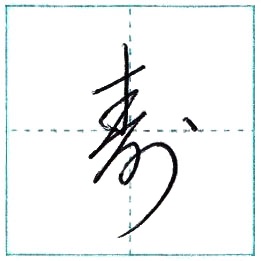前回と今回の記事で、行書の「寿」を2種類紹介しています。今回はそのPart.2です。
ぜんかいとこんかいのきじで、ぎょうしょの「寿(じゅ)」をにしゅるいしょうかいしています。こんかいはそのパートツーです。
In the previous and this article, I’m introducing 2 types of 寿(ju) in semi-cursive script. This time is the Part.2.
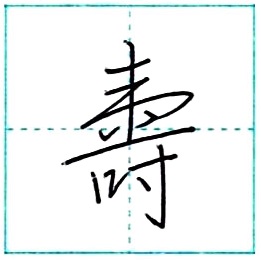
スポンサーリンク
単語例(たんごれい)
Word examples
寿ぐ [ことほぐ ko to ho gu] = to celebrate (formal expression)
※祝う [いわう iwa u] = to celebrate (normal expression)
寿 [ことぶき ko to bu ki] = longevity, congratulations (written word)
五十嵐 寿 [いがらし ことぶき i ga rashi kotobuki] = Igarashi Kotobuki (character of a Japanese manga “Space Brothers”)
※宇宙兄弟 [うちゅう きょうだい u chuu kyou dai] = Space Brothers
北園 寿葉 [きたぞの ことは kita zono koto ha] = Kitazono Kotoha (character of a Japanese manga “The Prince of Tennis”)
毛利 寿三郎 [もうり じゅさぶろう mou ri ju sabu rou] = Mōri Jusaburō (character of “The Prince of Tennis”)
※テニスの王子様 [テニスの おうじさま te ni su no ou ji sama] = The Prince of Tennis
スポンサーリンク
書き順(かきじゅん)
Stroke order
1.
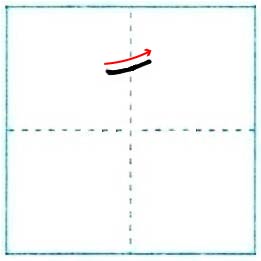
2. 次の線は、1画で書きます。
つぎのせんは、いっかくでかきます。
Write the next line with one stroke.
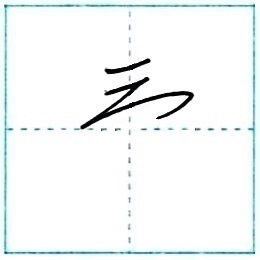
2-1.
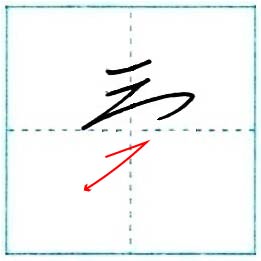
2-2.
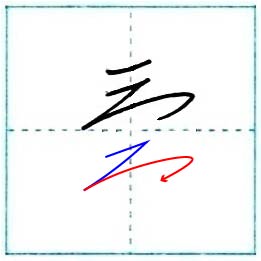
3.
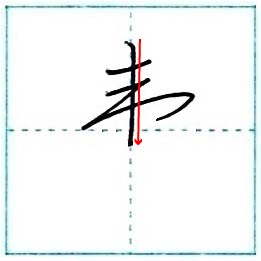
4.
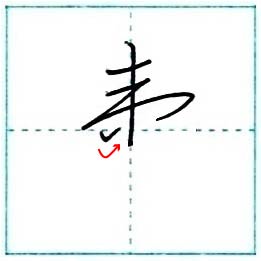
5.
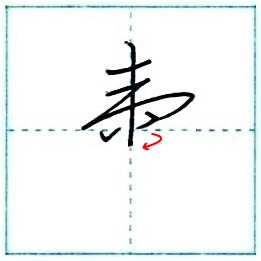
6.
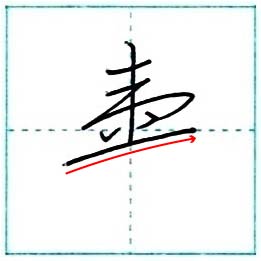
7.
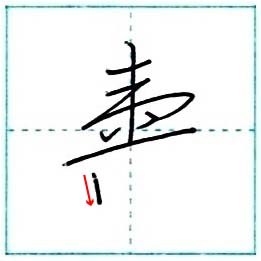
8.
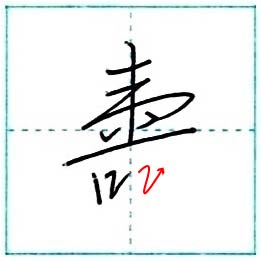
9.
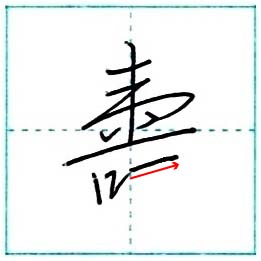
10.
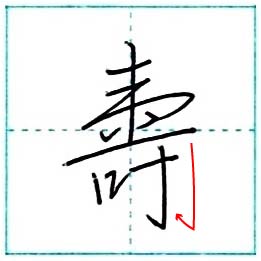
11.
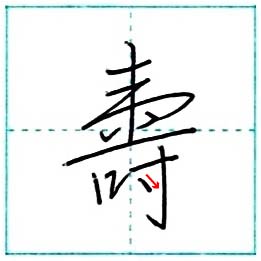
12. 完成(かんせい) Finish

※この行書は、「寿」の旧字体の「壽」が元になっています。
このぎょうしょは、「寿」のきゅうじたいの「壽」がもとになっています。
This semi-cursive script is made from 壽, the old form of 寿.
公開日/post 2021.12.04
更新日/update 2021.12.10
スポンサーリンク

